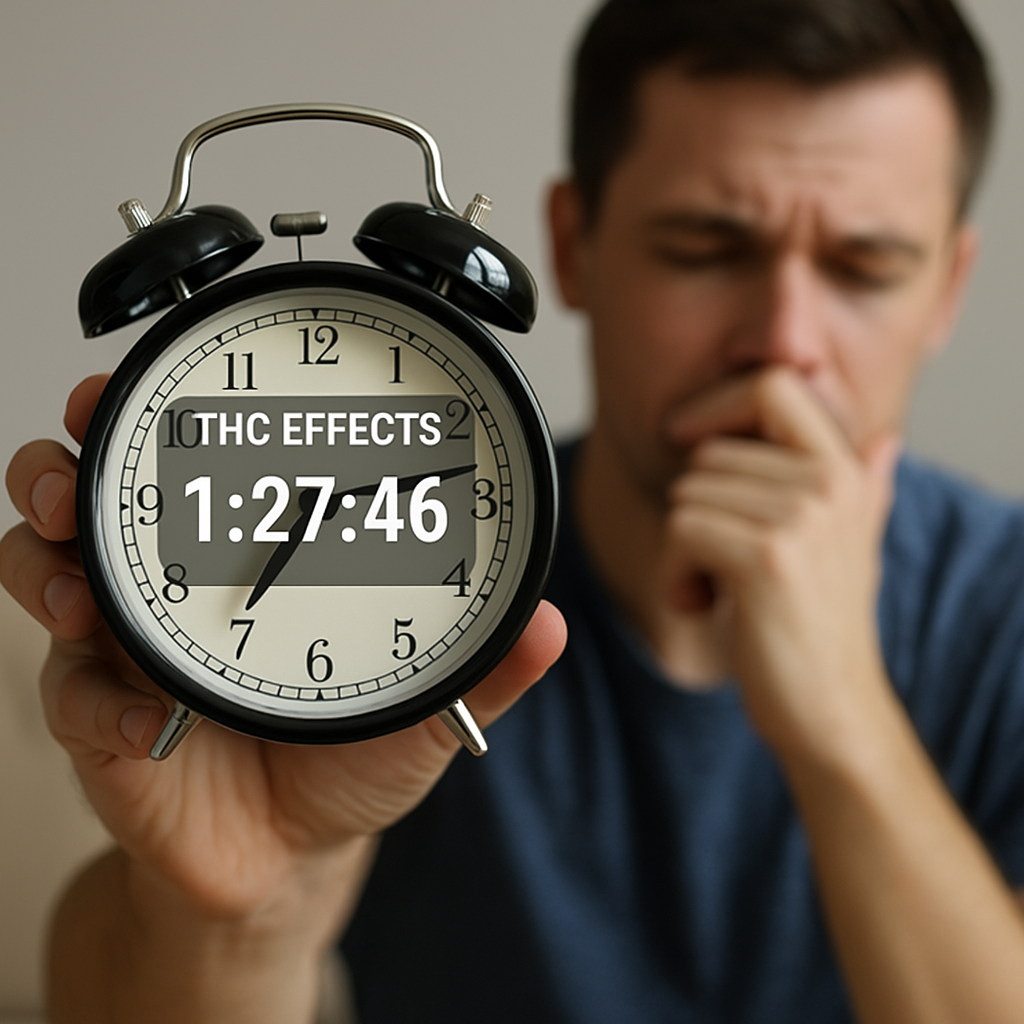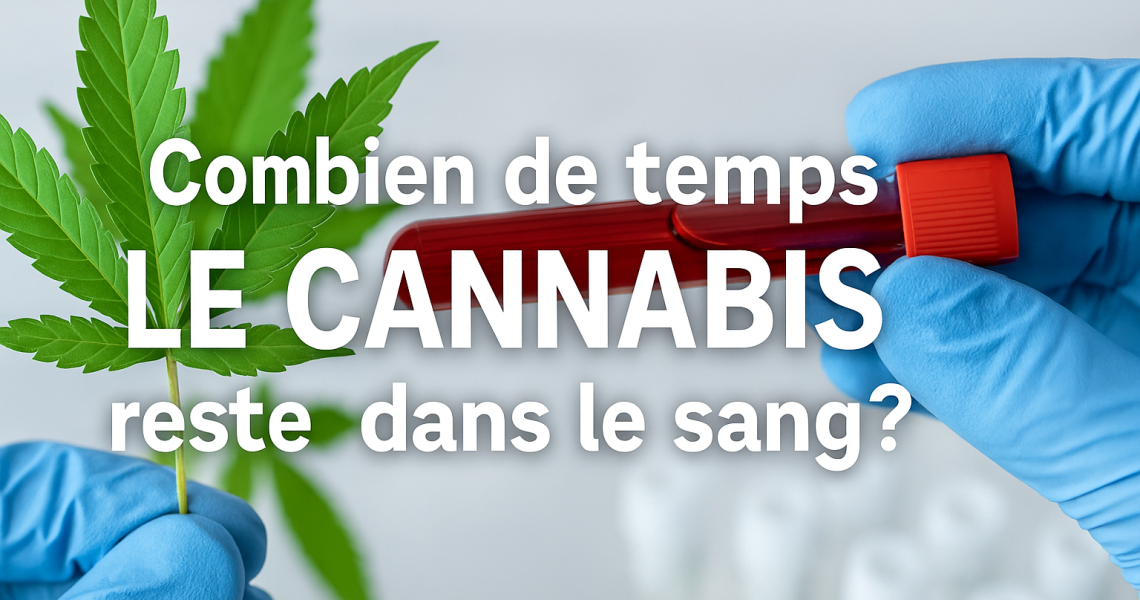What you really need to know about detecting THC in your body
What is THC?
THC, or tetrahydrocannabinol, is the main psychoactive substance in cannabis. It modifies perception, mood and behavior, as well as the body‘s cognitive functioning. Unlike CBD, another molecule derived from hemp seeds, THC produces euphoric, anxiolytic or even anxiety-inducing effects, depending on the quantity and frequency ofuse.
THC is present in the majority of products derived from cannabis: flowers, resin, oils and edibles. And while its effects may wear off in a few hours, its traces in thebody persist… much longer.

How long does THC last?
The duration of the effects of cannabis depends on several factors: your weight, metabolism, tolerance, quantity consumed and method of consumption (smoked, ingested, vaporized…).
- When smoked, THC is fast-acting: within minutes, users experience a high. This effect can last from 2 to 6 hours.
- Orally, the rise is slower, but the effects last longer (up to 12 hours).
But beware: once the effects have worn off, THC does not disappear from the system. It can still be detected by several types of screening test, sometimes weeks after consumption.
How long do traces of THC remain in the body?
This is the question that many consumers ask themselves: how long does THC remain in the blood? The answer is not universal.
It all depends:
- your consumption frequency
- of the quantity consumed
- your body’s metabolism
- and the type of test used
THC is fat-soluble: it accumulates in body fat. Once metabolized, it is transformed into metabolites such as THC-COOH, which can remain in thebody for quite some time.
Read also: Become a Mylasertabac franchisee in the field of smoking cessation and addictions.
THC detection with a blood test
A blood test is one of the most accurate methods of detecting cannabis in the blood. THC becomes detectable as early as 1 to 2 hours afteruse.
- For occasional use: THC remains visible in the blood for around 12 to 24 hours.
- For regular users: metabolites can be detected up to 7 days after the last joint.
The blood test is often used for road accidents or sensitive occupational tests.
THC screening by saliva test
The saliva test is the one used by law enforcement agencies for roadside testing. It detects the presence of THC in saliva.
- In the event of occasional consumption: the test is positive for approximately 6 to 12 hours.
- In frequent users: up to 24 or even 36 hours.
Even if the detection time is shorter than in blood orurine, the saliva test remains highly effective in the short term.
THC urine screening
Urine testing is the most common form of THC testing, whether for in-house screening or medical follow-up. It looks for THC metabolites (notably THC-COOH) in urine.
- 3 to 7 days for occasional use
- 10 to 15 days for regular consumption
- Up to 30 or even 45 days for chronic consumption
The length of time it remains in theurine is influenced by metabolism, hydration and frequency of use.
THC release in the body
THC is stored in body fat. In the event of stress, fasting or intense physical activity, some THC can be released into the bloodstream, making the test still positive weeks after stopping consumption.
This phenomenon explains why some users are still detected long after their last dose.
Understanding the effects and risks of cannabis use
Cannabis is often perceived as a mild, even natural substance. Yet its regular or excessive use has very real impacts:
- memory and attention disorders
- demotivation, social isolation
- anxiety, panic attacks
- reduced cognitive performance
- metabolic disturbance
And over the long term, the risk of psychological dependence increases. Some consumers even end up trivializing their use, without realizing the real impact on their health.

Cannabis withdrawal by laser: a natural and effective solution
More and more people want to stop using cannabis, but don’t know how. Withdrawal from cannabis can bring unpleasant symptoms: irritability, insomnia, anxiety, intense cravings.
This is where the laser method comes in, offered by specialized centers such as MyLaserTabac.
💡 Thanks to auricular reflexologythe anti-addiction laser stimulates precise points in the ear associated with addiction. Pain-free and without side effects, this gentle technique :
- reduces cravings
- soothes body and mind
- helps restore balance
- supports a healthier use of energy
This method is also effective for withdrawal from sugaralcohol or tobacco. It helps users to break the cycle of consumption without suffering.
Conclusion: Cannabis leaves traces for longer than you think
If you thought cannabis was quickly eliminated from the body, think again. Depending on the type of test, frequency of use and metabolism, THC can remain detectable for up to 45 days. Testing can be carried out using blood, saliva, urine or even hair.
But beyond testing, the real question is: what if you decided to stop for good? Not out of fear of testing, but out of a desire to regain your freedom. Thanks to the anti-cannabis laser method, you can make a lasting, supported, natural and effective change.
